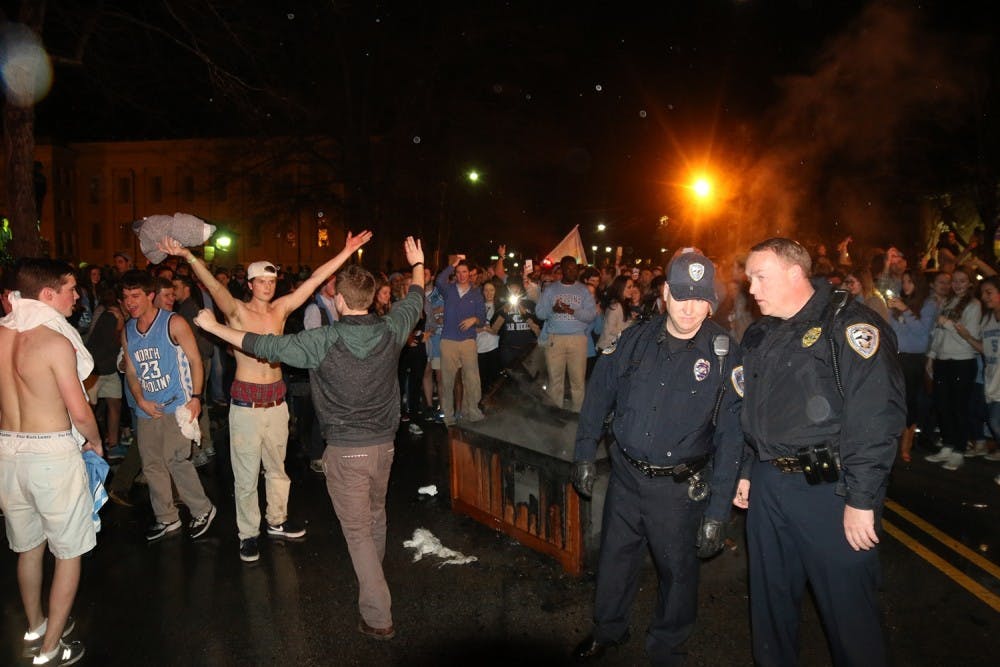UNC and Chapel Hill announced a new program Wednesday that will allow students to register off-campus parties in hopes of reducing noise complaint citations.
The program, “Party, Police Free,” gives students the opportunity to notify the town of off-campus parties held on Friday and Saturday nights. In return, party hosts receive a warning text message or phone call if the Chapel Hill Police Department receives a noise complaint, giving them 20 minutes to either control the event or end it. If another complaint is registered after the 20 minutes, police will then dispatch an officer.
Aaron Bachenheimer, executive director of off-campus student life and community partnerships, helped establish the program over the past year after seeing its success at other universities.
“It’s an opportunity to give students the ability to take more responsibility for hosting social events that might draw guests to their houses,” Bachenheimer said. “It empowers students to be able to address those complaints and take some leadership and responsibility when hosting events in the community.”
In order to register a party, students must provide the party’s time, location and the host’s contact information in an online form. Next, students must stop by the Office of Community Involvement in Granville Towers South to finalize registration and receive “party smart” tips.
But Bachenheimer is realistic.
He said he doesn’t expect hundreds of parties to be registered immediately. Instead, he anticipates a gradual building of trust.
At the University of Colorado Boulder, where he first observed the program, Bachenheimer said students registered 50 parties during the program’s first year, before jumping to 250 and 500 parties in the next two years.
“When I was 18, 19, 20 years old I would have had a little bit of a pause about, ‘Do I really want to tell the town that I’m having a party on Friday night?’” Bachenheimer said. “I think as they see that registering their party actually lessens the likelihood of a police officer showing up at their front door, rather than increase the likelihood, then that’s where the trust gets built.”



